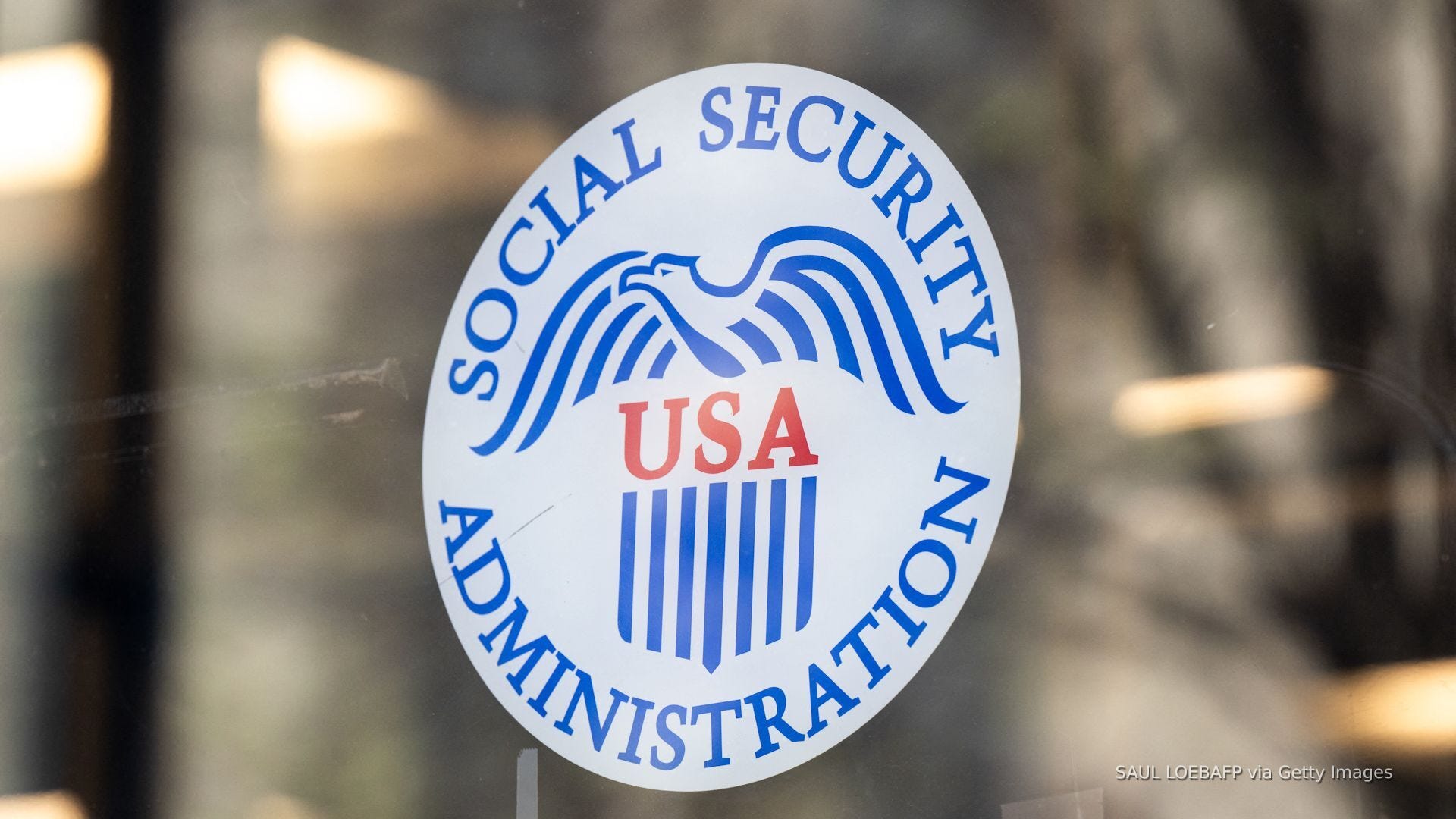Will Social Security cuts really make government more efficient? Depends on whom you ask

Achieving government efficiency’s been a mantra of President Donald Trump’s second term, but some people say the slashing of the Social Security Administration will have the opposite effect or worse.
Last month, SSA announced a massive reorganization that would include “significant workforce reductions.” SSA said it set a staffing target of 50,000, down from the approximately 57,000 employees at the agency when it announced the cuts. SSA staffing was already down by more than 9% since 2015, the nonprofit AARP said.
The latest reduction immediately set off alarm bells for some politicians, policy experts, and Social Security consultants who warned the program's 72.5 million Social Security beneficiaries could face a slowdown in the processing of benefits applications and longer waits for SSA help. Beneficiaries include retirees and children who receive retirement and disability benefits,
“Social Security administrative expenses represent less than 1% of benefits paid,” said Senator Patty Murray (D-Washington), and vice chair of the Senate Appropriations Committee, in a press release. “It’s about 0.2% of total government spending. Cutting Social Security staff and closing offices is not going to reduce the deficit or make the government more efficient. Instead, it is making it harder for millions of Americans to apply for the benefits they have earned, and delayed processing. And it’s simply another way of cutting Social Security benefits.”
What’s happening at SSA?
Not only has the agency cut staff and closed offices, according to the Department of Government Efficiency (DOGE) website, it has also introduced new identification policies that require people to come to field offices or access information online instead of calling. On Wednesday, SSA said it would delay implementing that highly criticized move.
Some experts said that could alienate older generations who aren’t as tech savvy, disabled Americans who may also rely on disability payments or people from rural communities.
“Requiring rural Americans to go into an office can mean having to take a day off of work and drive for hours merely to fill out paperwork,” AARP said in a statement on March 19.
Several advocacy groups, including AARP, have urged the government to rethink these moves.
What happened to SSA during the last decade?
Since 2015 when SSA was cut by 9%, SSA saw a significant decline in customer service, according to a July 2024 AARP report.
The average time to get a decision on an initial claim for disability benefits has more than doubled since 2016, from four to eight months, and callers to Social Security’s toll-free helpline have experienced waits averaging as long as 40 minutes to speak to a representative, AARP said.
Government efficiency or destroying Social Security?
Trump’s administration insists the moves are aimed at preventing fraud and eliminating waste from the program. On the White House fact sheet, it cited as one of many points that “the Social Security Administration made an estimated $72 billion in improper payments between 2015 and 2022.”
It added “what kind of a person doesn’t support eliminating waste, fraud, and abuse in government spending that ultimately costs taxpayers more?”
Critics, however, said the latest cuts only harm beneficiaries, many of whom may rely on the monthly checks to survive.
Already, SSA’s website crashed four times in 10 days this month, according to Accountable.US, a watchdog group. “Millions of Americans have been unable to access their earned benefits because the servers were overloaded,” it said.
Some have even suggested the cuts are a way to destroy Social Security and replace it with a privatized alternative.
Developments at SSA “leave us deeply concerned that…the Trump Administration (is) setting up the SSA for failure—a failure that could cut off Social Security benefits for millions of Americans—and that will then be used to justify a ‘private sector fix,” Senators Ron Wyden, (D-Oregon), and Elizabeth Warren, (D-Massachusetts ) wrote to Social Security Commissioner nominee Frank Bisignano ahead of his hearing on Tuesday in front of the Finance Committee.
Medora Lee is a money, markets, and personal finance reporter at Paste BN. You can reach her at mjlee@usatoday.com and subscribe to our free Daily Money newsletter for personal finance tips and business news every Monday through Friday.